📁RETURN TO FIRST IMPRESSIONS
📁RETURN TO CHA REVIEW OF BOOKS AND FILMS
Alexandra A. Chan, In the Garden Behind the Moon, Flashpoint, 2024. 432 pgs.
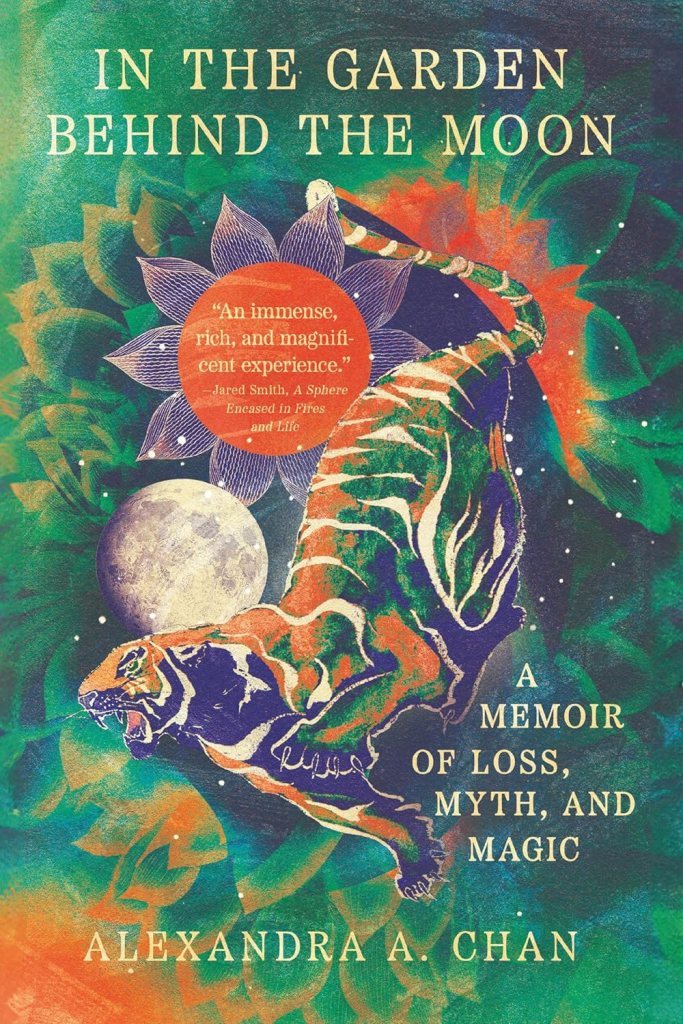
On paper, Alexandra A. Chan seems to have it all. A doctor of archaeology, a professor, a wife, and a mother. But after her parents die, she starts to reassess her life, where she came from, and what’s really important. The resulting book, In the Garden Behind the Moon, is a family memoir that begins in China during the first stirrings of what will become the 1911 Revolution. Chan goes above and beyond the makings of a traditional memoir, incorporating dozens of stunning family photos—her family certainly are stunning!—and her beautiful brushstroke art and calligraphy to complement her graceful writing.
Chan comes to an epiphany on a family trip to Iceland soon after the death of her father. Out in nature, which is nothing new to an archaeologist, Chan appreciates what really matters to her in the world. I think a lot of people came to this realisation during the pandemic when inside gatherings were off limits and people found refuge out in nature. We suddenly seemed much smaller in the universe. It’s in Iceland where Chan yearns to know more about the mythos or myths in life. Before this trip, she has just been focused on the logos or logic and reason. To learn more about the mythos of her life, she looks back at her family history. She writes:
While stories link us to our past and give us a moral compass, they also allow us to project ourselves into possible futures. How can we know where we are headed, or where else we might want or need to go, if we don’t know who we are or where we have been? Stories fulfil that purpose. And our memories are so wrapped in stories that it is impossible to extricate one from the other.
Chan’s grandfather was born Chang T’ai Peng in Guangdong province and goes into exile in the United States after becoming involved in revolutionary activities in the late 19th century. He settles in Savannah, Georgia. This detail stood out to me because my grandfather’s cousin settled in Savannah after fleeing Nazi Germany for Shanghai, where he lived for the better part of a decade. Savannah is not the first destination one might think Chinese or Jewish immigrants would flock to, but many small businesses like grocery stores in America’s Deep South were run by people who were desperate for jobs and a way to put food on the table. Enter marginalised immigrants.
In Savannah, Chan’s grandfather attends a church, where Americans change his name to Robbie Chan. He cannot become a US citizen because of the Chinese Exclusion Act. On top of that discrimination, he is subject to the Jim Crow laws of the American South. Because he is not white, his children cannot go to school. Chan’s father, also named Robert, grew up in this environment.
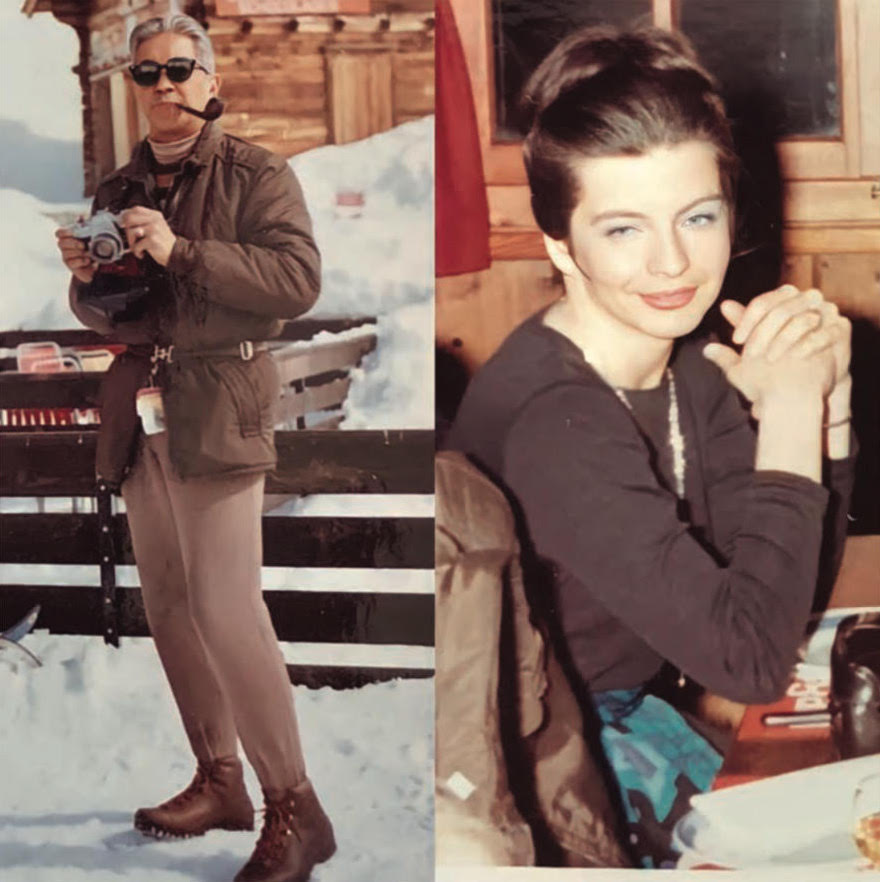
Alexandra A. Chan’s parents, Bob and Karen: “The story of Chan’s parents’ marriage is one made for the movies.”
When Chan’s father—known as Bob—grows up and enters middle age, he meets and marries Karen. The story of Chan’s parents’ marriage is one made for the movies and she writes about her parents and their unlikely—at the time—cross-cultural marriage. Bob is almost three decades Karen’s senior, and he ends up retiring when Chan is young so Karen can work full-time as a computer systems analyst for Kodak. Bob ends up raising Chan and thus makes a huge impression on her, which one can see led her to study archaeology.
So it was he who taught me to tie my shoes and the difference between who and whom, I and me, and why I should care. It was he who took me out fairy hunting on dew-covered mornings and brought me to the Rochester Museum & Science Center on Friday afternoons. My black patent leather Mary Janes clicked satisfyingly on the marble floors as we strode hand in hand to the ticket counter, ready to see dinosaur bones and First Nations dioramas, every week as exciting as if it were the first.
Bob Chan lives past the age of 100, well after Karen dies of cancer. And in homage to her father, Chan separates the sections of her book into the Chinese zodiac signs of the years she writes in her book, starting with the time around her father’s death. At the beginning of the sections, she explains each of these zodiac signs—the mythos of her story—which works really well with her family memoir, but it’s her drawings that push her book to another level.
As a way to mourn, Chan learns calligraphy and brushstroke painting and from the images she includes in her book—there are many—it seems like she’s been creating this art form forever. She points out her first illustration at the beginning of the book, a snake or serpent that forms a circle, with each part of the body marked with a different zodiac sign representing the years covered in Chan’s story. Animals feature prominently in her paintings, and Chan also draws breathtaking Chinese landscapes, flowers, and rock formations as well as an elegant scarab in a chapter set in Egypt, among many others.
It may have taken the death of her parents and a pandemic to bring Chan to appreciate her family’s history and the joys of nature and painting, but as she shows it’s never too late. She also shows innovative ways to construct a memoir, layered with mythos, photos, and paintings. May her book inspire others to search inward and find the art and family lore in their lives.
Click the images below to enlarge.
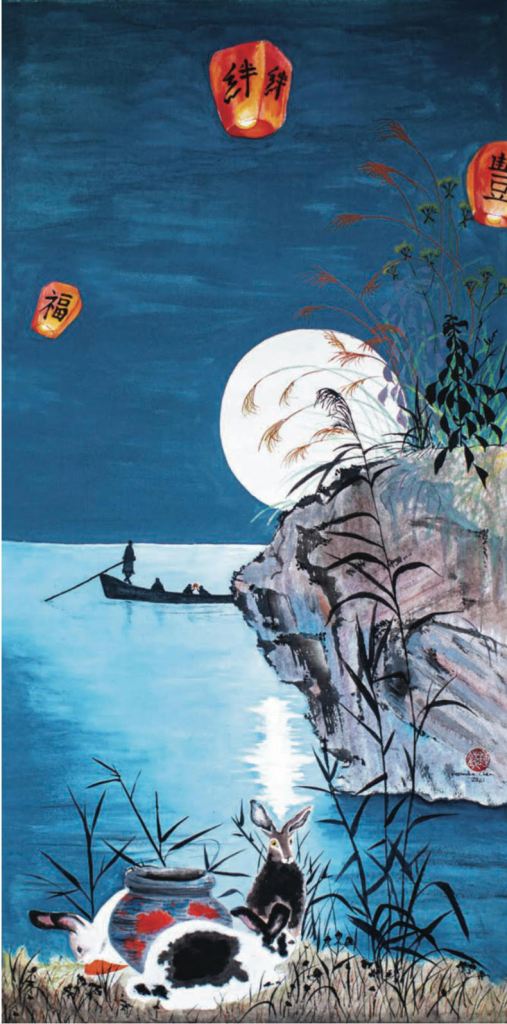
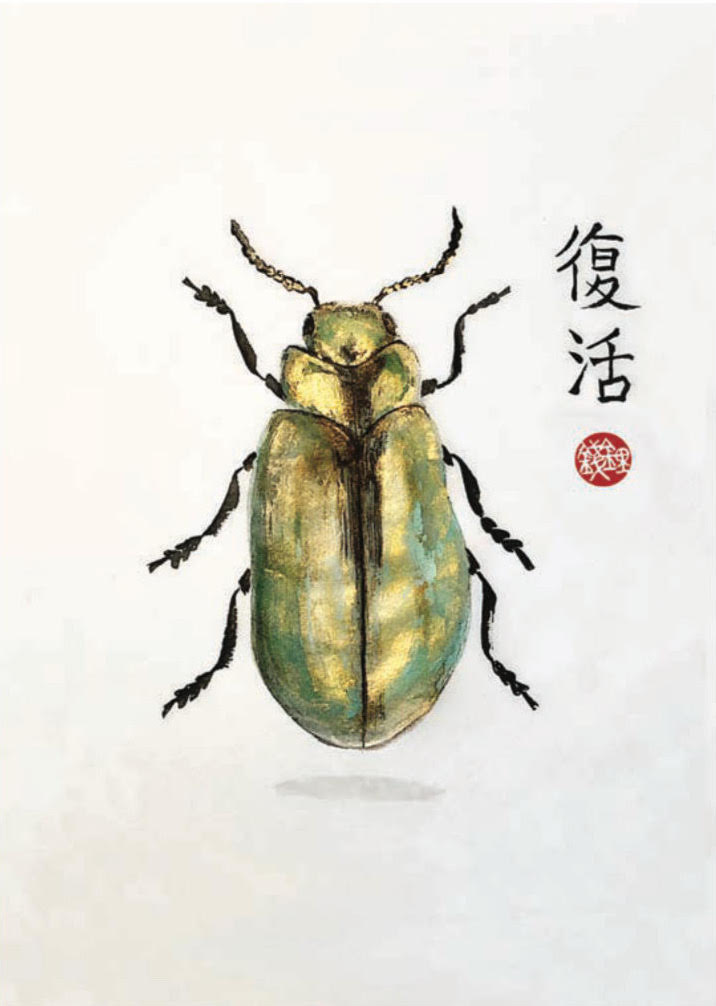
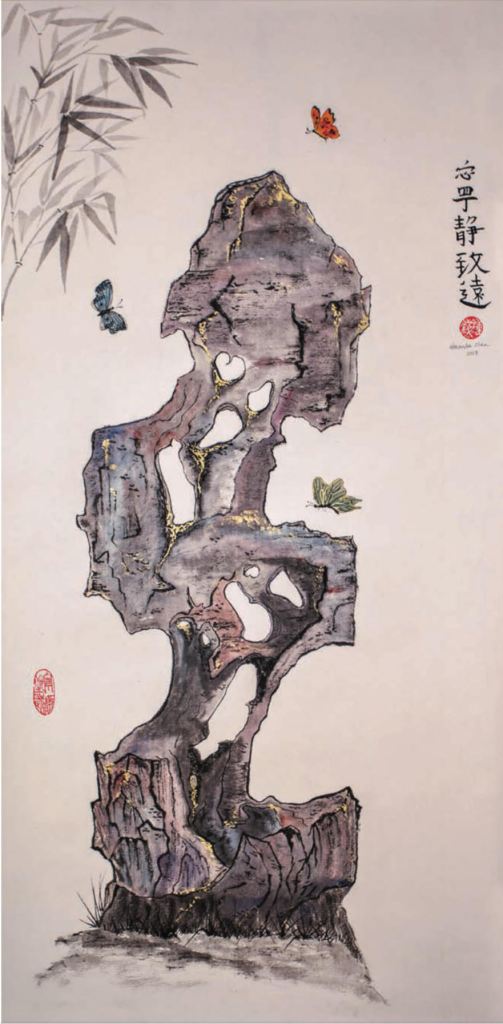
How to cite: Blumberg-Kason, Susan. “Remembering Through Memoir: Alexandra A. Chan’s In the Garden Behind the Moon.” Cha: An Asian Literary Journal, 20 Jun. 2024, chajournal.blog/2024/06/20/behind-the-moon.



Susan Blumberg-Kason is the author of Good Chinese Wife: A Love Affair With China Gone Wrong. Her writing has also appeared in the Los Angeles Review of Books‘ China Blog, Asian Jewish Life, and several Hong Kong anthologies. She received an MPhil in Government and Public Administration from the Chinese University of Hong Kong. Blumberg-Kason now lives in Chicago and spends her free time volunteering with senior citizens in Chinatown. (Photo credit: Annette Patko) [Susan Blumberg-Kason and ChaJournal.]



















